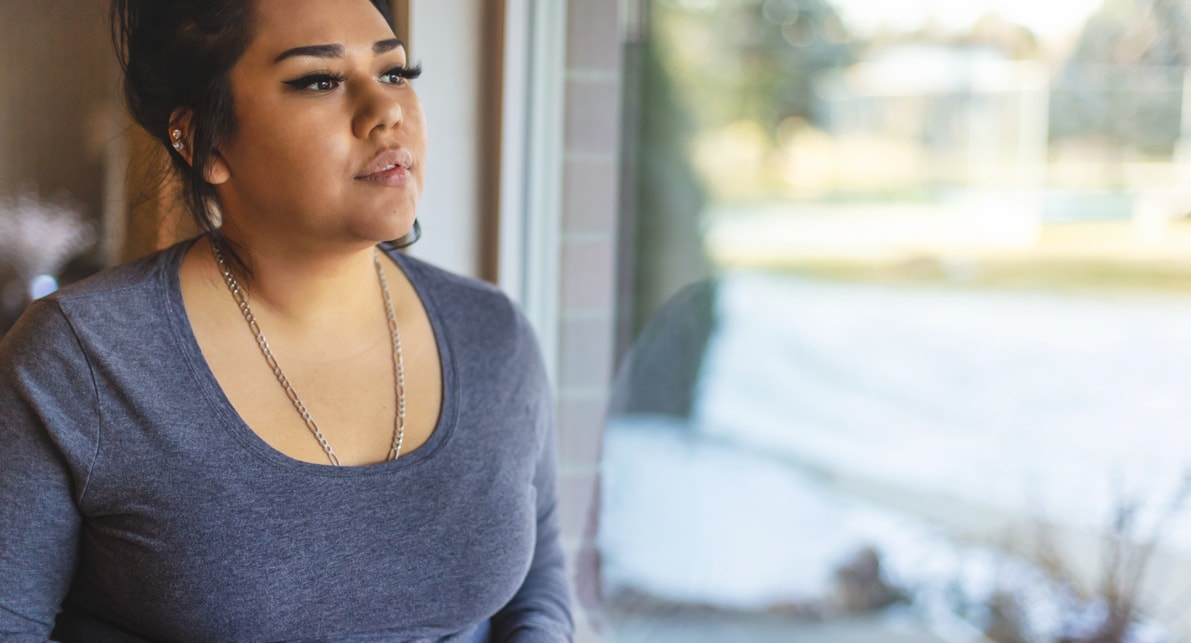The Book
The Future of Building Wealth: Brief Essays on the Best Ideas to Build Wealth—for Everyone
Editors: Ray Boshara, Federal Reserve Bank of St. Louis and Ida Rademacher, Financial Security Program, The Aspen Institute
The Federal Reserve Bank of St. Louis, in partnership with the Aspen Institute’s Financial Security Program, have assembled a diverse array of experts committed to advancing proven and promising ideas to address racial, generational, gender and education wealth gaps in the U.S. We hope you will find these essays engaging, thoughtful, and provocative.
Download the acknowledgements, foreword and introduction. Learn more about the contributors and download each section below.

Section I
The New Baseline: The State of Family Wealth and Wealth Inequality Today
The book begins with six essays that offer some level setting about the state of wealth ownership and wealth disparity in America today. Together they provide insight into which families have the greatest barriers and arguably the greatest need to build wealth.
Unequal Starting Points: A Demographic Lens Is Key for Inclusive Wealth Building
By Ana Hernández Kent and Lowell R. Ricketts
Cash Remains King
By Kathryn Edwards and Bradley Hardy
The Generational Wealth Gap: Facing the Future but Falling Further Behind
By Fenaba R. Addo and Reid Cramer
After Half a Century, the Racial Wealth Gap Remains Wide — Suggesting Bold Responses Are Warranted
By Kilolo Kijakazi and Signe-Mary McKernan
Understanding the Gender Wealth Gap, and Why It Matters
By Mariko Chang, Ana Hernández Kent and Heather McCulloch
How Should We Finance Postsecondary Education: Debt, Private Wealth or Public Wealth?
By Fabian T. Pfeffer and Lowell R. Ricketts

Section II
Inclusion and Equity by Design
A central finding of the asset-building field, beginning with its experiments with Individual Development Accounts in the 1990s, was that institutions — governments, employers, nonprofits, financial institutions, etc. — matter significantly in determining who builds assets and who does not.
Without Financial Inclusion, We’ll Never Achieve Racial Equity
By Angela Glover Blackwell
Why Stakeholder and Community Voice Matter
By Aisha Nyandoro, Ph.D.
We Have Clean Water and Clean Air: Why Not Clean Finance, Too? A Vision for Inclusion and Equity
By Jin Huang, Michael Sherraden and Margaret S. Sherraden
Toward a More Inclusive and Equitable Financial System
By Salah Goss and Jennifer Tescher
Including Black Investors: Let’s Start with Youth
By Stephanie J. Creary and John W. Rogers, Jr.
Overcoming Systemic Financial Exclusion of People with Disabilities in CRA and CRA Modernization
By Michael Morris and Nanette Goodman
Rethink Public Policies to Support Income Production, Savings and Asset Accumulation for People with Disabilities
By Michael Morris and Nanette Goodman
Partners for Rural Transformation—Driving Ownership and Economic Opportunity In Persistently Poor Places
By José Quiñonez
Wealth Building for Native Families and Communities
By Christy Finsel (Osage) and Karen Edwards (Choctaw)
Building Financial Security for Essential—But Invisible—Immigrant Workers
By José Quiñonez
Advancing Racial Equity Through Inclusive Community Growth
By Ellis Carr

Section III
Stronger Balance Sheets: Financial Services, Cash and Savings
This and the following two sections aim to feature some of the nation’s latest and best thinking on how to build (or rebuild) a strong balance sheet — the cornerstone of accumulating wealth.
Reimagining Financial Services Not Around the Lives of Others: A Call For Radical Action
By Bob Annibale
Meeting People Where They Are and Laying a Foundation for the Future: Solving America’s Emergency Savings Crisis
By Deborah Winshel and Timothy Flacke
Just Give People Money. But How and When?
By Jonathan Morduch and Rachel Schneider
Frontiers in Financial Capability: Bringing Technology and Coaching Together to Strengthen Family Balance Sheets
By Mae Watson Grote and J. Michael Collins
A Golden Moment: Using Tax Refunds to Build Savings and Promote Economic Mobility
By Stephen Roll and Michal Grinstein-Weiss
Human Service Professionals: A Ready Workforce for Financial Capability
By Margaret S. Sherraden, Jin Huang and Jenny L. Jones
The Financial Urgency of Now—and the Promise of Fintech
By Wole Coaxum

Section IV
Stronger Family Balance Sheets: Debts
Continuing our focus on improving family balance sheets, we now turn to the liability side: household debts — whether from credit cards, mortgages, student loans, health expenses, municipal fines and fees, automobiles or informal debts owed to family and friends.
Bringing Dignity to Debts
By Frederick F. Wherry
Respond, Restructure, Rebound: A Path to Prosperity Following a Financial Shock
By R. Jerry Nemorin
Fair Fines and Fees: How San Francisco is Leading the National Movement for Financial Justice
By José Cisneros and Anne Stuhldreher
Generational Double Threat—and Opportunity: Student Loans and Retirement Security
By Diego Martinez and Romy F. Parzick
Debt Collectors Are Coming to Court—But We Can Protect Families from Losing Wealth They Shouldn’t Have to Lose
By Erika Rickard

Section V
Stronger Family Balance Sheets: Assets
We round out our three-part focus on shoring-up balance sheets by offering 15 essays on new ways to build assets or “capital,” as well as new ways to think about those assets—savings, education and skills, homeownership, small businesses, and retirement.
Transforming 529 College Savings Plans: Grow Assets for Everyone, Grow the Country
By Michael Sherraden and Margaret M. Clancy
Meeting the Task of Closing the Racial Wealth Gap: Reparations for Black American Descendants of U.S. Slavery
By William A. Darity Jr. and A. Kirsten Mullen
Three Bold Proposals to Overcome Our Nation’s Enduring Racial Wealth Gap
By Darrick Hamilton and Naomi Zewde
A Risk-Free Way to Build Wealth? Forget It
By Allison Schrager
Our Older Versus Our Younger Selves: Time Travel, Wealth and Family Formation
By Scott Winship
Two is Wealthier Than One: Marital Status and Wealth Outcomes Among Preretirement Adults
By W. Bradford Wilcox
Building Wealth by Investing in Four Forms of Capital
By Ross DeVol and David Shideler
Show Me the Money: To Build Wealth Inclusively, Look to Where People Accumulate and Government Subsidizes It
By C. Eugene Steuerle and Safia Sayed
Land and Opportunity: Reforming Heirs Property Rights
By Karama Neal, Ph.D.
Black Homeownership Matters
By Vanessa Perry and Janneke Ratcliffe
Building Wealth Inclusively Through Business Ownership
By Joyce Klein
How College Degrees Can Become Assets, Not Liabilities, for Disadvantaged Students
By Kevin Carey
Building Human Capital and Assets for Those Without a College Degree
By Oren Cass
How Child Savings Accounts Can Offer All Children the Future They Deserve
By William Elliott III
Achieving a Holistic, Inclusive, People-Centric Retirement Savings System
By Karen Biddle Andres and David C. John

Section VI
Sharing Risks and Rewards, and Protecting Family Wealth
The five essays in this section are not about building family wealth per se but about broader notions of property rights and protecting and creating wealth in the overall economy.
The Mission Economy and Our “Earthshot”: Socializing Risks and Rewards
By Mariana Mazzucato
Broadening Ownership First Requires Rewriting the Rules of Debtors and Creditors
By Katharina Pistor
From Safety Net to Building Wealth: Make It Cash, Make It People-Centered and Make It Automatic
By Rachel Black
Our Nation Insures Losing Your Income—Why Not Also Losing Your Wealth?
By Ray Boshara and Ida Rademacher
American Families Need an Operation Warp Speed for Sustainable Financial Tools: Lessons from Vaccine Development and Trials
By Mark Greene

Section VII
Newer Forms of Ownership: Moving Beyond Earned Income and Beyond Silos
The 11 essays in the section have two main goals. The first one is to identify potentially new sources of ownership and wealth that do not fully depend on families having sufficient labor market incomes to build a strong balance sheet.
From Social Insurance to Social Inheritance: A Path to Universal Financial Security
By Peter Barnes
From My Data to Our Data: A Proposal to Equitably Distribute Wealth in a Digital Economy
By Yakov Feygin, Nicolas Vincent, Hanlin Li, Chirag Lala and Luisa Scarcella
The Community Investment Trust: Revolutionizing Ownership in Real Estate, One Investor at a Time
By John W. Haines
A New Boogeyman? How Corporate Consolidation Undermines Small Businesses, Family Wealth and the American Dream
By Phillip Longman and Barry C. Lynn
Deriving Income from Universal Capital Accounts: Fixing Our Broken Income Distribution System
By Roland M. Attenborough
Why Profit Sharing is Essential for Building Middle-Class Incomes and Wealth
By Joseph R. Blasi and Douglas L. Kruse
The Untapped Potential of Employee Ownership to Narrow Gender and Racial Wealth Gaps
By Janet Boguslaw
Family Wealth Building Isn’t Enough: We Must Pursue Community Wealth Building As Well
By Ted Howard and Sarah McKinley
Transforming Systems to Build Racial and Ethnic Wealth Equity
By Ianna Kachoris and Dr. Helene Gayle
Lending Where Others Will Not: How CDFIs Build Family and Community Wealth
By Brent Howell, Lisa Mensah and Dafina Williams
Building Agency and Ownership in the Deep South
By William J. (Bill) Bynum and Ed Sivak

Section VIII
Growing Wealth, Growing the Economy
Our last three essays focus on how addressing wealth gaps will also generate substantial benefits for the economy. One essay describes the specific channel —investments in children, business formation, and family financial stability through which building family wealth promotes sustained economic growth.
Family Wealth as an Engine for Macroeconomic Growth
By Karen Dynan and Abigail Wozniak
Reducing Racial Wealth Gaps—And Why That Matters
for Families and the Economy
by Brenden McKinney, Nick Noel, Duwain Pinder and Shelley Stewart
A Citizen’s Wealth Fund: Broadening Asset Ownership, Reducing Inequality and Stabilizing the System
By Mark Blyth and Eric Lonergan

Section IX
Thoughts on Wealth Inequality, Financial Inclusion and the Racial and Other Wealth Gaps
A Conversation Between James Bullard, President, Federal Reserve Bank of St. Louis; Raphael Bostic President, Federal Reserve Bank of Atlanta; Patrick T. Harker, President, Federal Reserve Bank of Philadelphia; and Neel Kashkari, President, Federal Reserve Bank of Minneapolis
Presented by the Aspen Institute Financial Security Program and the Federal Reserve Bank of St. Louis

